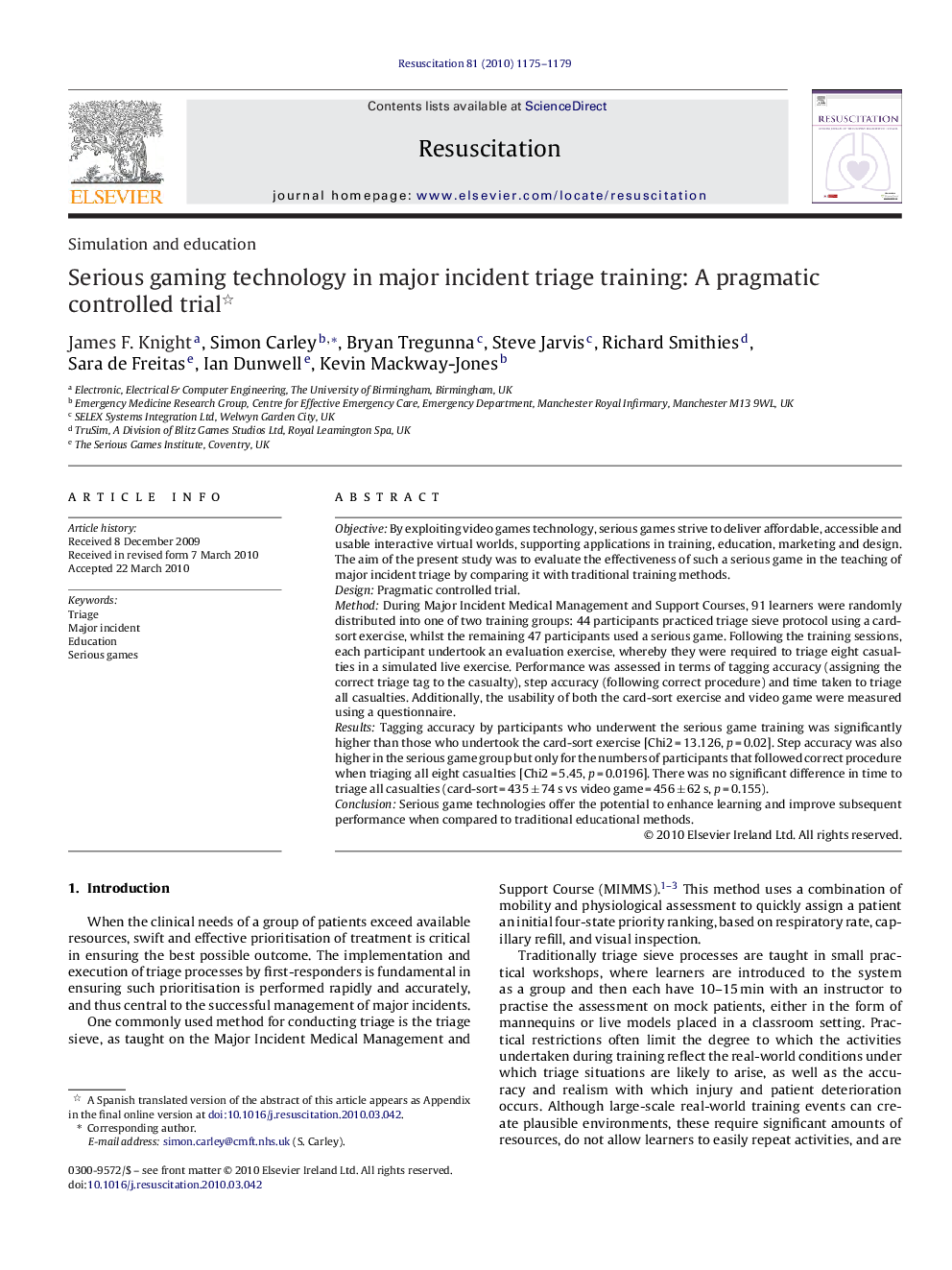| Article ID | Journal | Published Year | Pages | File Type |
|---|---|---|---|---|
| 3009315 | Resuscitation | 2010 | 5 Pages |
ObjectiveBy exploiting video games technology, serious games strive to deliver affordable, accessible and usable interactive virtual worlds, supporting applications in training, education, marketing and design. The aim of the present study was to evaluate the effectiveness of such a serious game in the teaching of major incident triage by comparing it with traditional training methods.DesignPragmatic controlled trial.MethodDuring Major Incident Medical Management and Support Courses, 91 learners were randomly distributed into one of two training groups: 44 participants practiced triage sieve protocol using a card-sort exercise, whilst the remaining 47 participants used a serious game. Following the training sessions, each participant undertook an evaluation exercise, whereby they were required to triage eight casualties in a simulated live exercise. Performance was assessed in terms of tagging accuracy (assigning the correct triage tag to the casualty), step accuracy (following correct procedure) and time taken to triage all casualties. Additionally, the usability of both the card-sort exercise and video game were measured using a questionnaire.ResultsTagging accuracy by participants who underwent the serious game training was significantly higher than those who undertook the card-sort exercise [Chi2 = 13.126, p = 0.02]. Step accuracy was also higher in the serious game group but only for the numbers of participants that followed correct procedure when triaging all eight casualties [Chi2 = 5.45, p = 0.0196]. There was no significant difference in time to triage all casualties (card-sort = 435 ± 74 s vs video game = 456 ± 62 s, p = 0.155).ConclusionSerious game technologies offer the potential to enhance learning and improve subsequent performance when compared to traditional educational methods.
